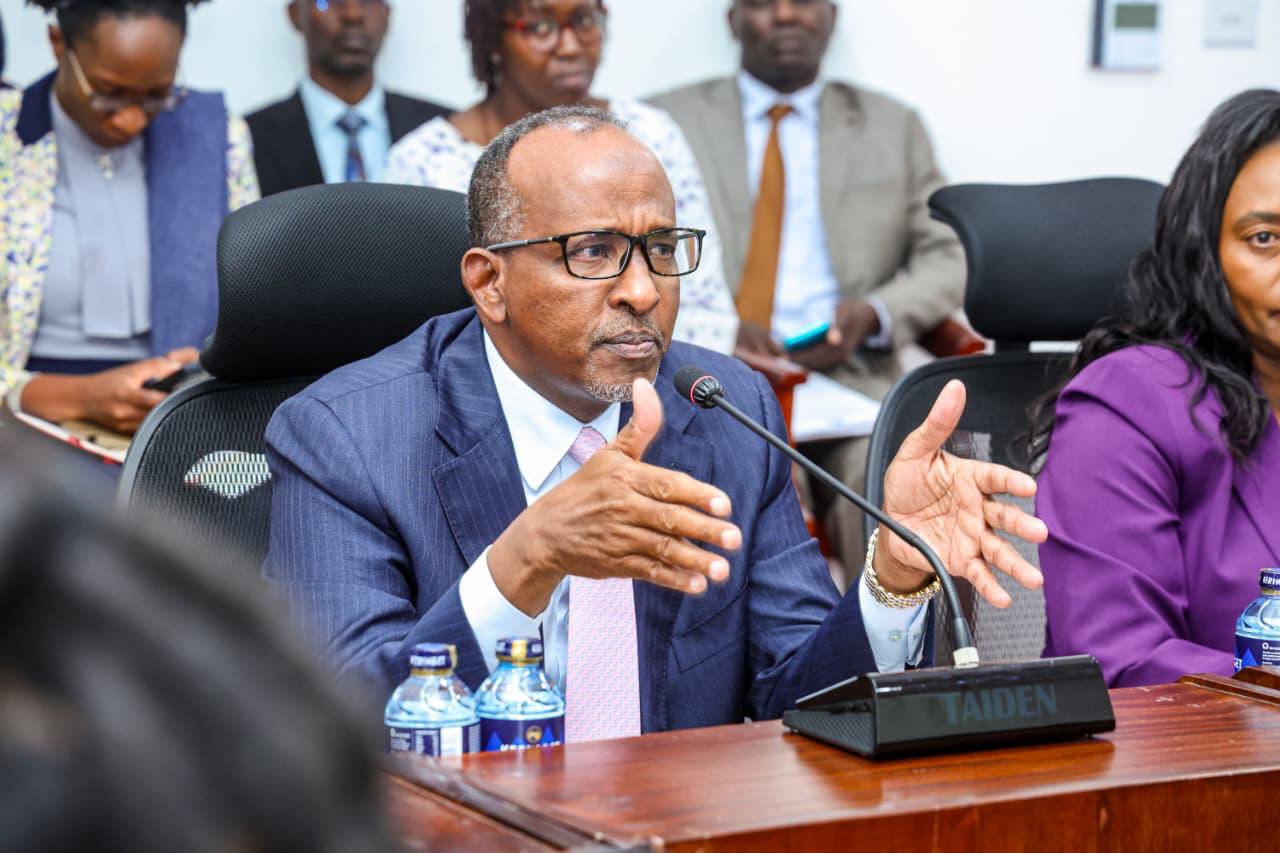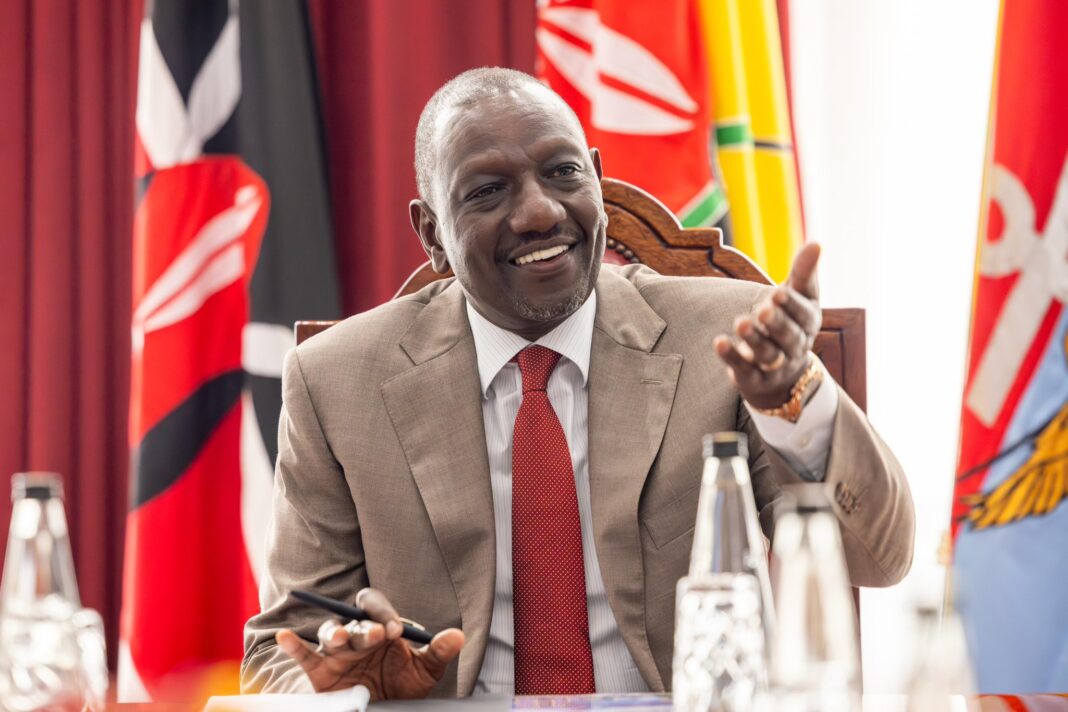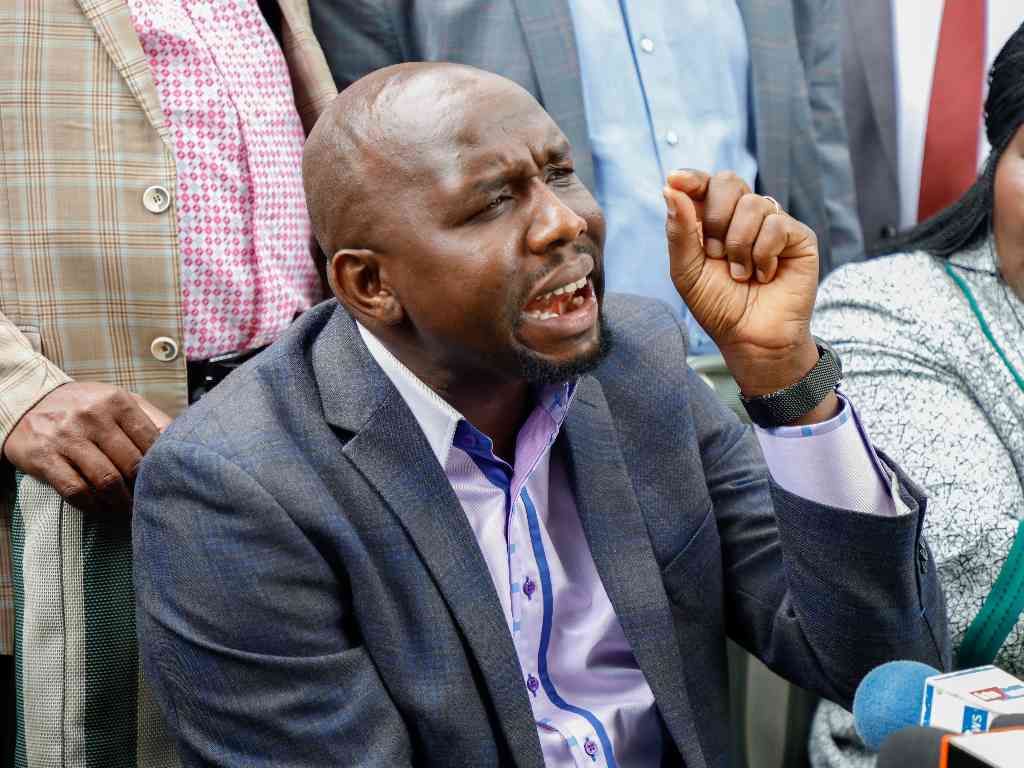Kenya’s Health Cabinet Secretary Aden Duale has launched a bold war against corruption in the Universal Health Coverage (UHC) sector.
Speaking on Friday, August 1, during the commissioning of 316 nursing graduates at Afya House, Duale declared his intention to recover salaries paid to ghost workers—individuals who have earned public money for years without performing any duties.
The health boss said these fake workers will not only be removed from the payroll but also prosecuted and compelled to return every shilling they received.
His remarks come amid a tough verification process meant to clean up UHC payroll records and weed out fraudulent employment.

Ministry of Health Moves to Clean Up Ghost Workers in UHC Sector
Aden Duale revealed that the Ministry of Health has identified thousands of ghost workers illegally drawing salaries under the UHC programme. These individuals, he said, have drained millions of public funds while offering no service to the Kenyan people.
“I have the money to absorb UHC staff into permanent and pensionable terms, but I won’t rush,” said Duale. “I’m doing proper vetting and verification. Before we give anyone permanent employment, we must ensure they are legitimate.”
The Cabinet Secretary stated that those found to have pocketed government funds fraudulently will be forced to reimburse every cent and face legal consequences.
“If you are not a nurse by profession and you have been earning the money of UHC all these years, you will meet the law. You have to refund that money,” he warned.
Duale confirmed that the verification process is in its final stages. Qualified staff should expect absorption into permanent and pensionable roles as early as next week.
This strong message comes at a critical time when Kenya is grappling with stretched healthcare services and rising concerns over misuse of public funds.
Counties Also Feeling the Heat from Payroll Fraud
The rot in the UHC sector is not just at the national level. Tharaka Nithi Governor Muthoni Njuki recently exposed over 3,000 ghost workers in his county’s health department.
Njuki, who also chairs the Council of Governors’ Health Committee, said these ghost workers were hidden under the UHC payroll — costing counties millions in salaries and benefits each year.
His revelation prompted national attention to what appears to be a coordinated fraud scheme within the health sector. Ghost workers are reportedly registered with fake identities or never report to work, yet continue receiving monthly pay.
“This is theft of public funds,” Njuki said in an earlier briefing. “And it is a major reason counties are unable to improve healthcare delivery.”
In many counties, real health workers struggle with delayed salaries, understaffing, and lack of equipment — while ghost workers continue to drain resources in silence.
Internship Scandal Adds Fuel to the Fire
During the same Afya House ceremony, Duale addressed another major concern — the controversial revocation of internship placements for over 300 nursing interns.
The CS explained that some of the revoked interns had not officially graduated from their courses but were still issued offer letters through fraudulent means. According to Duale, completion letters were being misused in place of actual graduation certificates.
“We recalled them because they were posted due to systemic graft,” Duale said firmly. “Completion is not graduation. If you have not graduated and shown us your certificate, you cannot be posted as an intern.”
He maintained that the Ministry of Health will not allow any intern or employee to join the system through shortcuts or corruption. This, he emphasized, is part of a wider plan to restore trust in the public healthcare system.
Duale’s tough stance signals a new era of accountability in Kenya’s health sector. By prioritizing verification and merit-based appointments, the Ministry hopes to seal the loopholes that have allowed payroll fraud to flourish.
The Cost of Ghost Workers in UHC Sector
The existence of ghost workers in the UHC sector is not just a case of poor recordkeeping—it’s a massive drain on the economy and a betrayal of public trust.
Every shilling paid to a ghost worker is money stolen from sick patients, overworked nurses, and underfunded hospitals. It’s money that could be used to buy essential drugs, build rural clinics, or train more healthcare workers.
Yet for years, fake names have continued to receive salaries without accountability — until now.
With Duale’s firm commitment, the Ministry of Health is finally addressing a long-ignored scandal. The vetting and audit processes may take time, but they are necessary steps toward a clean and efficient healthcare workforce.
The bigger question, however, is how these ghost workers entered the payroll system in the first place. Was it pure negligence? Or were government insiders complicit in the fraud?
As investigations continue, Kenyans are watching closely. The crackdown on ghost workers in the UHC sector will test the government’s seriousness about fighting corruption—and whether it truly values public health over politics.


